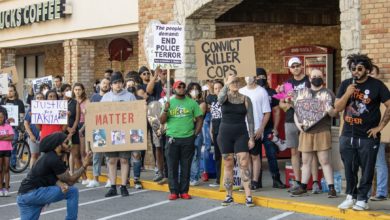Feb. 4 marked the 10th anniversary of the New York City Police Department shooting of Amadou Diallo.
|
Amadou Bailo Diallo was an immigrant worker and student from Guinea. Like many immigrants who come to the United States, Diallo wanted to become a permanent resident. Diallo would never get that chance.
On Feb. 4, 1999, Diallo was shot and killed by four NYPD plain-clothed officers: Sean Carroll, Brendan Murphy, Edward McMellon and Kenneth Boss. Though he was standing in front of his own Bronx residence and unarmed at the time of the shooting, the officers fired a fusillade of 41 rounds, 19 of which riddled his body. Diallo was only 23 years old.
Shockwaves of rage and grief rippled from New York City to the rest of the country and beyond. In the ensuing controversy, police brutality, racial profiling and gratuitous shootings became the targets of public outrage.
The four officers involved were part of the now-defunct Street Crimes Unit, a special police taskforce created by Mayor Giuliani to “take guns off the streets” and “clean up” New York. Giuliani’s crusade prompted the already aggressive and abusive police officers to be even more savage.
When Diallo was killed, Giuliani immediately and strongly backed the guilty police officers. Later, all of the officers were acquitted of criminal charges at trial.
Diallo’s death, the change of venue in the officers’ trial and the eventual not-guilty verdicts each sparked massive demonstrations against police brutality and racial profiling. Thousands of people came into the streets, with more than 1,700 people arrested over the course of many weeks.
Those arrested in the protests at the entrance of One Police Plaza came from all walks of life. Some politicians made an appearance, but it was the unity of the people—regardless of race, gender or age—that made its presence felt for their fallen brother. The charges against the activists were ultimately dropped.
The Justice Department announced in 2001 that it would not even charge the officers who killed Diallo with civil rights violations—much less murder.
Police brutality is an all too common occurrence in our society. Youth from oppressed communities are harassed by the police on a daily basis. Though the media rarely depict such harassment, working people cannot escape a reality that plagues neighborhoods from coast to coast.
The police brutality epidemic, a key component of national oppression in the United States, has continued regardless of which politician is in office. Clinton was in the White House when Diallo was murdered and he said absolutely nothing. Will Barack Obama be any different? When a judge acquitted the officers who fired 50 shots at Sean Bell on the day of his wedding, Obama said, “We respect the verdict.”
Diallo’s death at the hands of the police is no isolated incident but rather part of a pattern of systemic violence. Others victims include Anthony Baez, Sean Bell, Gary Busch and Oscar Grant, who will always be remembered by their loved ones and those who continue to take to the streets chanting “An injustice to one is an injustice to all!”







